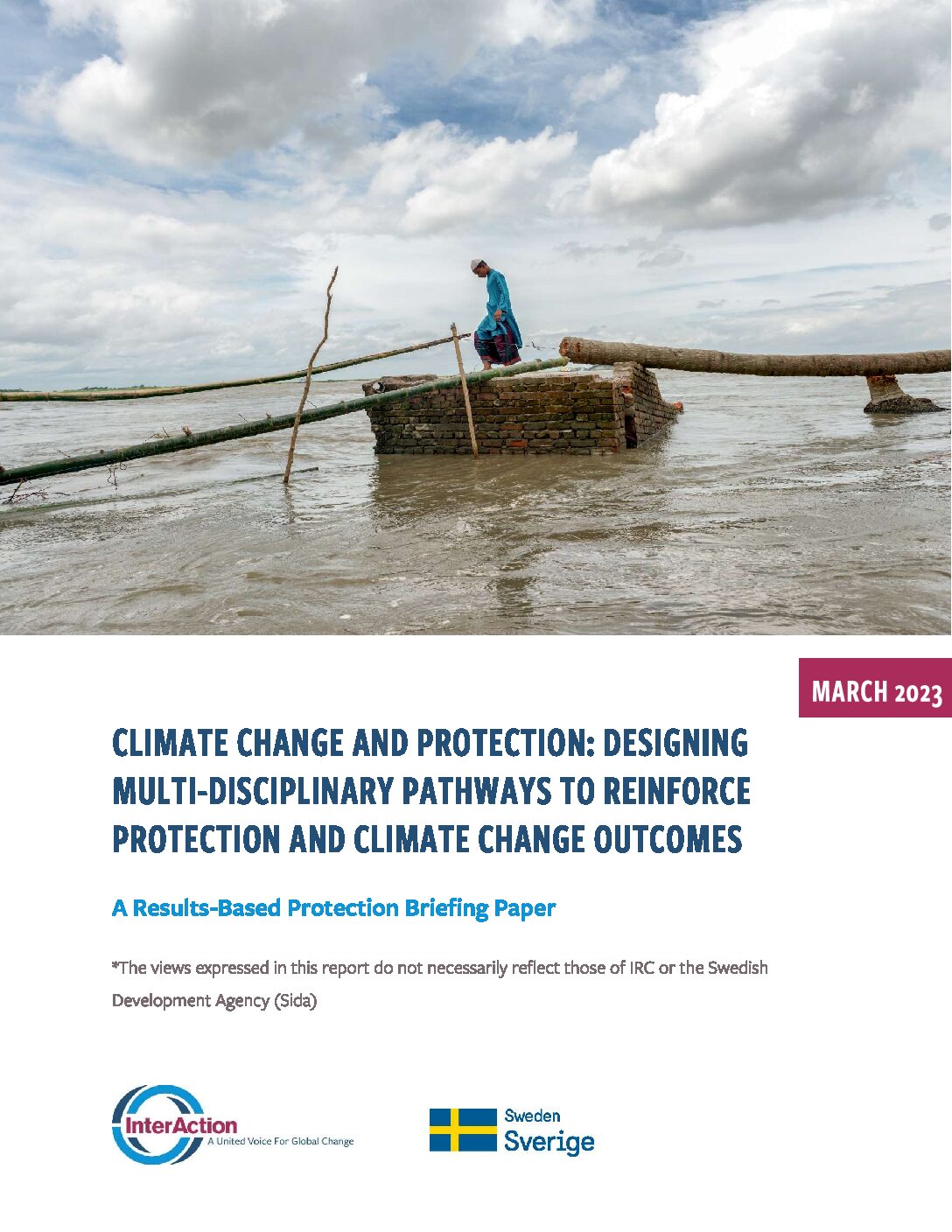The impacts of climate change are no longer in the future. They are here. Impacts, including erratic temperatures, increases in the frequency of extreme weather, drought, wildfires, flooding and more are being seen all over the world. A March 2023 Intergovernmental Panel on Climate Change (IPCC) report found that a 1.5 degree increase in temperature is likely in the “near term” – meaning years and not decades; an increase that is likely to have devastating results.
While humanitarian actors have begun to consider climate change and its impact on our work, the links between climate change and protection remain under-explored. This paper, using a results-based approach to protection, aims to begin to identify ways that humanitarians must work to understand the links between protection risks and the impacts of climate change in settings of armed conflict. Beginning with the perspective that reducing protection risk is a priority for the humanitarian community, we ask the questions: how does climate change impact that objective? What further considerations should we make in our protection analysis and strategies that incorporate context-specific and global climate change manifestations? What kind of collaboration do we need to address these issues effectively?
